Study in Ireland
From test prep to visa stamping, Bold Overseas has you covered.
- OVERVIEW
- TOP UNVERSITIES
- COURSES
- FINANCES
- ADMISSION
- VISA
- FAQ
study in Ireland Consultants
Ireland offers Indian students who want to study abroad the best combination of high-quality education, employment opportunities, and cultural immersion. Ireland provides a route to long-term success in addition to academic education, thanks to its highly regarded universities, advanced teaching methods, and solid industry contacts.
Internationally recognized degrees in in-demand industries including IT, finance, healthcare, pharmaceuticals, study in Ireland for Indian students offers students the finest of European education and lifestyle while making them feel at home because it is an English-speaking nation with a friendly, safe culture. Ireland is one of the most alluring study locations nowadays because of the presence of multinational organizations, which offer direct access to internships, research possibilities, and career networks.
However, the process of studying abroad entails navigating the sometimes daunting application, scholarship, and visa processes. One of the best consultancy in Hyderabad Bold overseas is essential in this situation. Bold Overseas makes sure that every step is easy and stress-free, from selecting institutions and getting applications ready to helping students with scholarships, visa paperwork, and even pre-departure procedures.
Partnering with Bold Overseas offers Indian students more than simply admission; it also entails obtaining professional mentoring catered to their academic and professional objectives. Their comprehensive assistance not only streamlines the procedure but also increases the likelihood of success in Ireland’s cutthroat educational system.
In summary, Ireland offers unparalleled employment prospects, international recognition, and academic quality. Your desire to study in Ireland becomes a reality when Bold Overseas Consultancy is on your side.
Why the Ireland ?
1. World‑Class Universities
- Home to top universities like Trinity College Dublin, UCD, and NUI Galway
- Ireland ranks among the top 20 education systems in the world
2. Industry-Led Programs
- Strong links with global companies in tech, pharma, finance, and healthcare
- Courses aligned with real-world job market needs
3. Work & Post-Study Rights
- 20 hours/week part-time work during study
- 2-year Graduate Stay Back Visa after completing your degree
4. Friendly & English-Speaking
- 100% English-speaking education system
- Welcoming, community-oriented society
5. Supportive International Environment
- Career centres, mentorship, academic & mental health support
- Government-led international student support initiatives
What to Expect: Fall, Spring & Summer Intakes
| Intake | Autumn (Main) | Spring (Few Options) |
|---|---|---|
| When It Starts | September | January/February |
| Pros | Full program availability, scholarship deadlines | Lower competition, off-cycle entry |
| Cons | High intake = early deadlines | Limited to certain programs |
| Deadlines | Jan – May | Sept – Nov |
Step‑by‑Step Roadmap
Profile Check
GPA, test scores, finances
Bold Overseas Shortlist
Based on goals, budget, ROI
Exam Prep
IELTS/TOEFL/GRE coaching & mock tests
Applications
SOP, LORs, transcripts, visa docs
Visa Success
Mock interview, document review
Pre‑Departure
Housing, health check, orientation
Explore Top Universities in the Ireland
Discover globally ranked institutions offering cutting-edge programs, expert faculty, and vibrant campus life
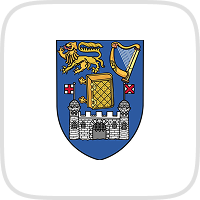
Trinity College Dublin
- Dublin 2, Ireland
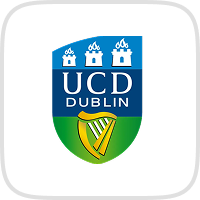
University College Dublin
- Belfield, Dublin 4, Ireland

University College Cork
- Cork, Ireland
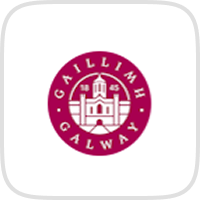
University of galway
- Galway, Ireland

Dublin City University
- Dublin, Ireland
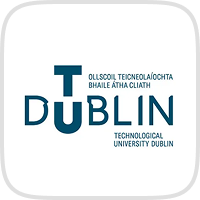
Technological university Dublin
- Dublin, Ireland
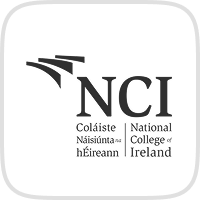
National College of Ireland
- Dublin, Ireland
Finances: Plan Your Investment in Ireland Education
Get a clear picture of what it takes—tuition, living, and city‑specific costs—so you can budget confidently.
Cost of Education
1. Public Universities
- Undergrad: EUR 9,000 – 20,000/year
- Master’s: EUR 10,000 – 25,000/year
2. Private Universities
- Undergrad: EUR 12,000 – 30,000/year
- Master’s: EUR 15,000 – 35,000/year
3. Average by Program
- Bachelor’s: EUR 12,000 – 20,000/year
- Master’s: EUR 14,000 – 25,000/year
- MBA: Up to EUR 40,000/year
Cost of Living
1. Monthly Budget : EUR 900 – 1,500
2. Housing
- On‑Campus Housing: EUR 5,000 – 7,500/year
- Off‑Campus Rent: EUR 400 – 1,200/month
3. Essentials
- Utilities: EUR 100 – 150/month
- Food: EUR 250 – 400/month
- Public Transport: EUR 50 – 100/month
4. Extras
- Health Insurance: EUR 500 – 800/year
- Phone & Internet: EUR 70 – 100/month
Admission Process: Your Path to France Universities
- Pro Tips
- Start 9–12 months before your intended intake.
- Apply early for scholarships and less competition.
- Check each university’s specific requirements online.
Visa Process & Requirements
To study in the U.S., international students must apply for an F-1 visa after gaining admission to a SEVP-approved institution. You’ll need to register with SEVIS (fee: $350) before scheduling your visa interview.
- You can apply up to 120 days before your course starts
- You may enter the U.S. no more than 30 days before classes begin
- Visa rules may change, so always stay updated on the latest guidelines
You’ll also need to book an appointment with the US embassy in your country for a visa interview. You’ll need the following items:
- your passport
- your visa application form
- financial documents.
FAQs
Why should Indian students choose Ireland for higher education?
Studying in Ireland is a sensible choice because Ireland offers globally recognized degrees, strong industry links, and excellent employment possibilities in industries like IT, finance, healthcare, and pharmaceuticals. Being an English-speaking country, it also provides a safe, friendly environment for international students
How much does it cost to study in Ireland for Indian students?
The cost to study in Ireland for Indian students normally ranges from €9,000 to €25,000 per year, depending on the course and university. Living expenses average about €800–€1,200 per month. Despite this, the return on investment is substantial due to Ireland’s strong job market and post-study work options.
How can the best consultancy in Hyderabad help students planning for Ireland?
The best consultancy in Hyderabad, like Bold Overseas, supports students through the entire process , from shortlisting universities and preparing applications to aiding with scholarships, visa papers, and pre-departure support. Their knowledge makes the journey pleasant and stress-free.
What are the visa requirements to study in Ireland for Indian students?
To study in ireland consultants, a student visa is necessary. This normally involves verification of admission from a reputable Irish university, financial documentation to support tuition and living expenses, English proficiency exam scores, and valid health insurance.
What are the career opportunities after completing studies in Ireland?
After completing their education, Indian students studying in Ireland can access outstanding career prospects in global firms, especially in IT, finance, pharmaceuticals, and healthcare. With the guidance of the ireland education consultants in hyderabad, students can plan their career path efficiently even before graduation
Book a 1 : 1 Call with our Expert on Studying Abroad!
- free experts assistance
- experienced counsellors

